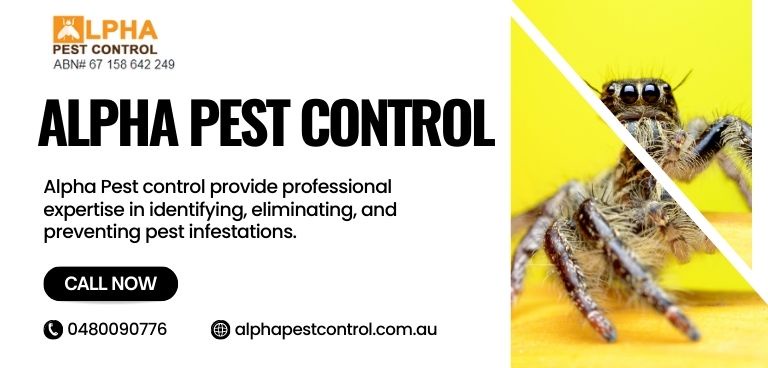Household pests not only create a nuisance but also pose significant health risks to humans. These pests, ranging from cockroaches to rodents, can contaminate food, transmit diseases, and trigger allergies. Understanding the health risks associated with common household pests is crucial for effective prevention and control. In this article, Pest Control Tyabb will unveil the hidden dangers of these pests and explore preventive measures to ensure a safe and healthy living environment.
Cockroaches: Carriers of Disease
Cockroaches are resilient pests that thrive in warm and humid environments. They are known carriers of pathogens such as bacteria, viruses, and parasites. Cockroach infestations can lead to respiratory issues, allergic reactions, and the spread of diseases such as salmonellosis and dysentery. It's important to address cockroach infestations promptly and maintain a clean living space to prevent their proliferation.
Bed Bugs: The Nighttime Nuisance
Bed bugs are tiny, blood-feeding pests that hide in mattresses, furniture, and cracks. While their bites may cause discomfort and itchiness, they are not known to transmit diseases. However, the presence of bed bugs can lead to psychological distress and sleep disturbances. Early detection and professional treatment are essential to eradicate bed bugs effectively.
Ants: Contaminators of Food
While ants may not pose significant direct health risks, they can contaminate food sources. Ants leave behind trails and fecal matter, which can contaminate surfaces and cause foodborne illnesses. Proper food storage and eliminating ant trails are crucial in preventing food contamination.
Fleas and Ticks: Parasites and Disease Vectors
Fleas and ticks are common pests that infest pets and can transmit diseases to humans. Flea bites can cause itching and discomfort, while ticks are known vectors for Lyme disease, Rocky Mountain spotted fever, and other tick-borne illnesses. Regular pet grooming, maintaining clean outdoor spaces, and using appropriate preventive measures are essential in minimizing flea and tick infestations.
Rodents: Threats to Health and Property
Rats and mice are not only destructive to property but also pose serious health risks. They can contaminate food, surfaces, and utensils with their droppings, urine, and saliva, leading to the spread of diseases such as hantavirus and salmonellosis. Rodents can also damage electrical wiring, posing fire hazards. Proper sanitation, sealing entry points, and professional rodent control are vital for mitigating these risks.
Prevention and Control Measures
To protect against household pests and their health risks, consider the following preventive measures:
1. Maintaining Cleanliness and Hygiene
- Keep your home clean and free of food debris that can attract pests.
- Regularly vacuum, sweep, and mop floors to remove crumbs and spills.
- Store food in airtight containers and promptly clean up spills or food waste.
2. Eliminating Entry Points
- Seal cracks, gaps, and openings in walls, floors, and windows to prevent pest entry.
- Repair damaged screens and seal gaps around utility lines and pipes.
- Trim vegetation and branches near your home to limit pest access.
3. Professional Pest Control Services
- Consult with professional pest control services for thorough inspections and treatments.
- They can identify pest infestations, recommend appropriate control measures, and provide ongoing prevention strategies.
Conclusion
Common household pests pose health risks that should not be overlooked. By understanding the dangers associated with pests such as cockroaches, bed bugs, ants, fleas, ticks, and rodents, and implementing preventive measures like maintaining cleanliness, eliminating entry points, and seeking professional pest control services when needed, we can create a safer and healthier living environment for ourselves and our families.
FAQs
- Can cockroaches cause allergies?
- Yes, cockroach allergens can trigger allergies and asthma symptoms in some individuals.
- Are bed bugs only found in beds?
- While bed bugs are commonly found in mattresses, they can also hide in furniture, carpets, and cracks.
- Do ants bite humans?
- Most ants do not bite humans unless they feel threatened. Some species may deliver mild bites.
- How can I prevent flea and tick infestations on my pets?
- Regularly groom and inspect your pets for fleas and ticks. Use appropriate preventive treatments as recommended by your veterinarian.
- Are rodent droppings dangerous?
- Rodent droppings can carry pathogens and contaminate surfaces. It's important to handle them with caution and clean affected areas thoroughly.


No comments yet